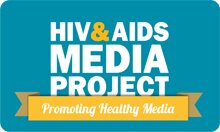Independence
This means keeping a distance from the various players, in order to be able to report honestly. This includes governments, even (perhaps particularly) in countries where it owns or dominates broadcasting and other media.
It's just as important to maintain a healthy scepticism when it comes to the pharmaceutical industry.
Some journalists interested in the issue find themselves siding with activist groups. But they should be wary of these, too. A whole industry has developed around HIV, and these groups need to be held to account as much as anybody else.
Journalists should not accept payment for writing stories, except of course from their employers.
The requirement of independence also raises the issue of paying sources. The expression "chequebook journalism" usually conjures up images of British tabloids paying vast sums for sensational stories. But here we are often dealing with people who really have almost nothing.
Sometimes, journalists will argue that it's not necessary to pay because reporting itself benefits people with HIV.
In an article published in The Star, Kerry Cullinan of health-e news dismissed that argument.2 She writes:
 "Journalists cannot, in truth, say that anything concrete will come from our stories. Anyone who promises that their stories will lead to a flood of funds is lying. What is in it for journalists is crystal-clear: we are paid to write stories about HIV and AIDS, so we need those affected to open their hearts to us.
"Journalists cannot, in truth, say that anything concrete will come from our stories. Anyone who promises that their stories will lead to a flood of funds is lying. What is in it for journalists is crystal-clear: we are paid to write stories about HIV and AIDS, so we need those affected to open their hearts to us.
To salve our consciences, some journalists offer groceries or money in exchange for stories. While some may reject this 'paying' for stories as an odious tabloid-press habit, at least it offers benefits to both sides. The journalist gets the story and the family can eat for another month."
She does go on to argue that these arrangements remain unsatisfactory.
It is a difficult issue, but audiences don't, in general, trust stories that have been bought, and that should be taken very seriously. And it's instructive that the ethics social scientists use don't allow for payment of interviewees either.






